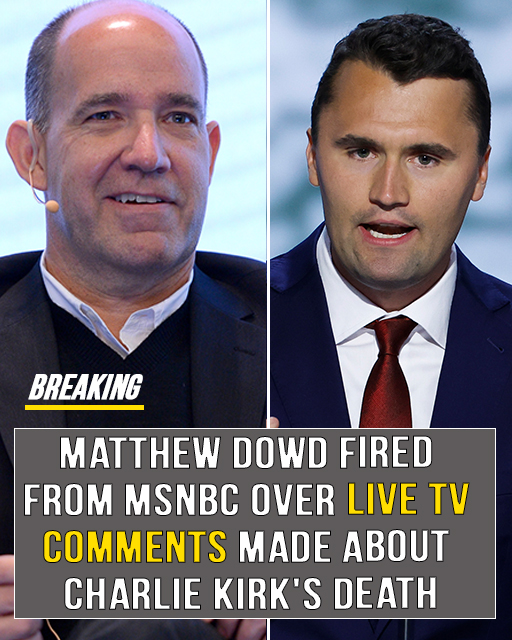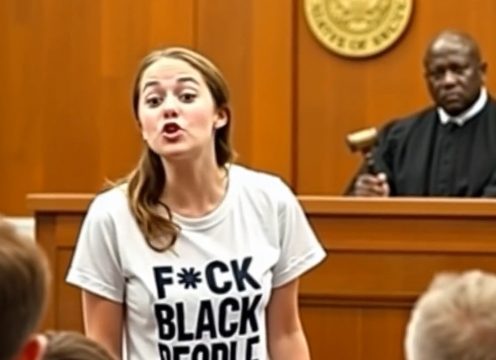The news of MSNBC firing one of its analysts after controversial remarks made on live television about the death of Charlie Kirk has quickly become a focal point in conversations about the media, political commentary, and the responsibilities of those given a national platform. Charlie Kirk, only 31 years old at the time of his death, had built a significant reputation as a conservative political commentator and as the co-founder of Turning Point USA, a group dedicated to shaping the beliefs of young conservatives and aligned closely with former President

He was known for his tireless travel schedule, engaging in debates, giving speeches across the country, and positioning himself as a strong voice for conservative youth. His sudden death on September 10 at Utah Valley University was both shocking and tragic. Reports confirmed that Kirk was struck in the neck by a single bullet believed to have been fired from the roof of a nearby building while he was participating in his “American Comeback Tour.” The shocking incident unfolded in front of a live audience and was captured by bystanders, with harrowing footage surfacing online before traditional news outlets could even report the story. Police detained two individuals in the immediate aftermath, but they were quickly released once it was determined they had no connection to the attack. The loss resonated deeply within political and cultural circles.
Former President Trump was among the first to share the news publicly, posting on Truth Social with a statement that called Kirk “The Great, and even Legendary” and praised him as someone who had understood and connected with America’s youth better than anyone else. Trump extended his condolences to Kirk’s wife Erika and their family, emphasizing the personal loss as well as the national impact of the tragedy. As the shockwaves spread, news outlets scrambled to cover the event, though not all did so in a manner received well by the public.
TMZ issued an apology after an incident where staff laughter was heard during a live report on Kirk’s death, though they clarified the laughter was about an unrelated video. Still, the perception of insensitivity fueled backlash. However, it was MSNBC analyst Matthew Dowd whose response had the most significant fallout. While appearing on air to discuss the environment that could allow such violence to occur, Dowd remarked that Kirk himself had played a role in fostering divisive rhetoric. He described Kirk as “one of the most divisive younger figures” who frequently pushed rhetoric he characterized as bordering on hate speech. Dowd went on to say that hateful thoughts evolve into hateful words, which then evolve into hateful actions, and framed this cycle as the unfortunate environment in which America now exists.
Many viewers immediately criticized Dowd’s comments as lacking compassion, especially in the immediate aftermath of Kirk’s killing. Critics accused him of politicizing a tragedy and implying that Kirk bore responsibility for the violence committed against him. The backlash was swift, and MSNBC moved to address the controversy. Network president Rebecca Kutler issued a statement calling Dowd’s remarks “inappropriate, insensitive, and unacceptable.” She emphasized that there is no place for violence of any kind in America, political or otherwise, and stated that both the network and Dowd himself had apologized. Still, the decision was made to fire Dowd, underscoring how seriously the network took the issue of tone and sensitivity in its coverage of such a tragedy. Following his dismissal, Dowd posted on the social media platform Bluesky to clarify his intentions.
He apologized for both his words and his tone, stressing that he had never intended to assign any blame to Kirk for his own murder. He described the shooting as horrendous and reiterated his call for Americans to unite in condemning violence of all kinds. While some sympathized with Dowd’s explanation, the damage to his career had already been done. The incident highlights the precarious balance that analysts and commentators must navigate during moments of national shock. In an era where political polarization runs high and every word is scrutinized, the expectation of empathy and restraint becomes even more critical when dealing with matters of life and death.
For many Americans, the immediate focus remains on mourning the loss of Charlie Kirk, supporting his family, and grappling with the broader implications of yet another high-profile act of violence. Kirk’s death not only left a void in conservative politics but also reignited debates about safety, rhetoric, and the role of public figures in shaping the national discourse. For MSNBC, the firing of Matthew Dowd stands as a reminder of the weight carried by live commentary and the potential consequences of words spoken in haste or without sufficient sensitivity. For the broader public, the episode serves as both a tragic story of a young life cut short and a cautionary tale about the responsibility of the media in moments of profound grief.





